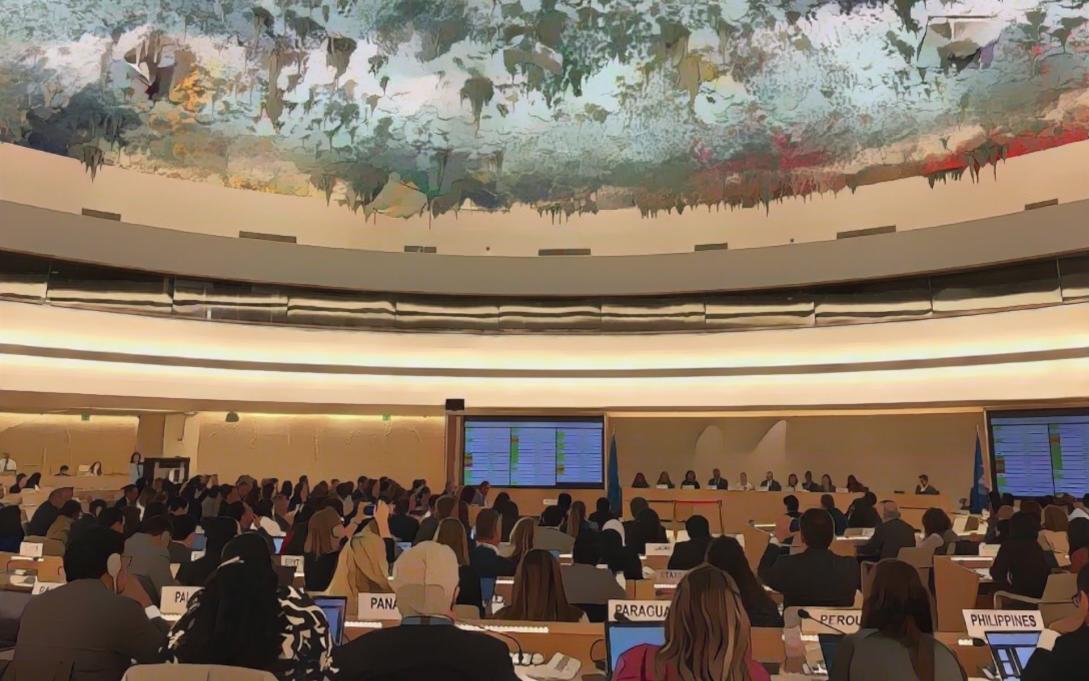EU action at the 58th session of the Human Rights Council

In an increasingly globalized world, where human rights are under attack on all continents equally, it is essential that states work together to defend common values and find solutions. The Human Rights Council itself is a prime example of the success of multilateral institutions. Through close co-operation between member states and civil society, we can regularly highlight human rights violations, set human rights standards and establish effective mechanisms for monitoring and enforcement and achieve justice and accountability. EU statement at HRC58 delivered by Ambassador Lotte Knudsen, Head of the EU Delegation to the UN in Geneva
At this session, the European Union introduced four resolutions, which were adopted by the Council:
Belarus: The severity and magnitude of widespread and systematic gross violations of human rights in Belarus have been well documented across the UN. Justice for victims of crimes against humanity and other human rights violations must be ensured. By adopting this resolution, the Council extends Group of Independent Experts on the Human Rights Situation in Belarus established last year. Their investigations and evidence gathering are indispensable. The resolution also extends the mandate of the Special Rapporteur to continue monitoring and providing recommendations on Belarus’ compliance with its international human rights obligations and as one of the last resorts for the Belarusian civil society. With the adoption of this resolution, the Council firmly stands by the victims and express a loud, clear NO to absolute impunity.
DPRK: The resolution on the Democratic People’s Republic of Korea draws attention to the dire human rights and humanitarian situation in the country and expresses support for accountability. The EU and Australia, as members of the core group of the DPRK resolution, are steadfast in their commitment to keep the human rights situation in the DPRK high on the agenda of this Council. The resolution renews the mandates of the Special Rapporteur and the OHCHR Seoul office. It is vital that the international community does not lose sight of the egregious human rights crisis in the DPRK. Accountability is key in ensuring long term peace and stability on the Korean Peninsula.
Myanmar: The Myanmar military continues inflicting unbearable levels of suffering and cruelty on people in Myanmar, in particular through its use of air strikes. Intensified conflict, transnational crime and forced conscription are pushing Myanmar further down the spiral, while horrific and systematic human rights violations persist. Persons in vulnerable situations, and in particular persons belonging to ethnic and religious minorities, including the Rohingya, continue to bear the brunt. This EU-led resolution underscores the importance of accountability efforts, including through the Independent Investigative mechanism for Myanmar, ICC, ICJ and universal jurisdiction. The text was reviewed to express sympathy for the victims and survivors of the earthquakes. The adoption of the resolution by consensus by the HRC sends a strong signal of support to the aspirations of the people of Myanmar for effective human rights protection, accountability, democracy and a civilian government reflecting the will of its people.
Freedom of Religion or Belief: Unfortunately, the right to freedom of religion or belief is far from being achieved. Reports about the discrimination and even persecution of persons belonging to religious minorities and of people who choose not to believe or to change their religion or belief continue to surface. This EU-led resolution renews the mandate of the Special Rapporteur on Freedom of Religion or Belief for an additional three years and calls upon Governments to fully cooperate with the mandate holder. The text also urges States to step up action to promote and protect freedom of thought, conscience and religion or belief and stresses the importance of a continued and strengthened dialogue in this regard.
At this session the EU continued to strongly condemn Russia’s ongoing aggression and reaffirmed its unwavering support for Ukraine and its people. Justice and accountability remain paramount. This is why all EU Members that are members of the Human Rights Council voted in favour of a resolution introduced by Ukraine, fully supporting the renewal of the mandate of the Commission of Inquiry as the most important body within the UN collecting evidence of the immense human suffering caused by Russia in Ukraine.
The Council debated many more situations, including the Middle East, Afghanistan and other countries. The EU Delegation worked constructively with all delegations to ensure that the Human Rights Council remains an effective guardian of human rights worldwide. We therefore also supported the efforts of our partners on a number of resolutions, including on the human rights situation in Syria, Iran, South Sudan, Nicaragua, and Haiti, as well as on thematic resolutions such as protecting Human Rights Defenders or advancing social, economic and cultural rights.
In a Team Europe approach, EU Member States also presented initiatives on their own behalf or as part of a group of countries, which include:
- Situation of human rights in the Islamic Republic of Iran
- Situation of human rights in Syrian Arab Republic
- Question of the realization in all countries of economic, social and cultural rights
- The human right to a clean, healthy and sustainable environment
- Human Rights of older persons
- Cultural rights and the protection of cultural heritage
- The impact of anti-personnel mines on the enjoyment of human rights
- Human Rights, democracy and rule of law
- Neurotechnology and human rights
- Women, diplomacy and human rights
All statements of the European Union at the Human Rights Council can be found here.




